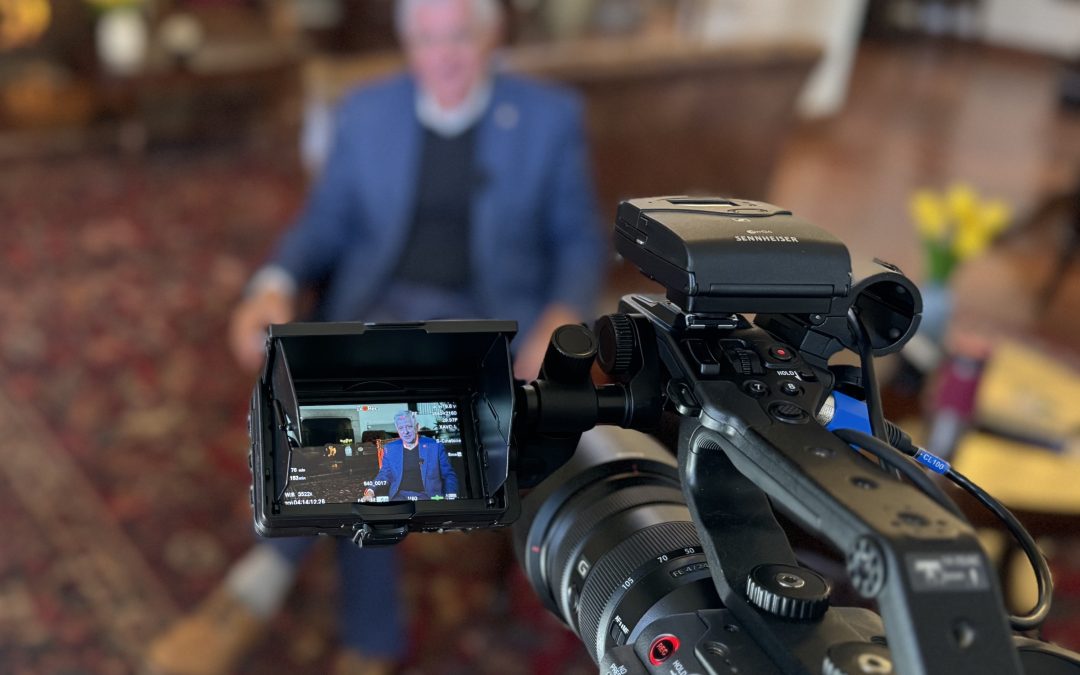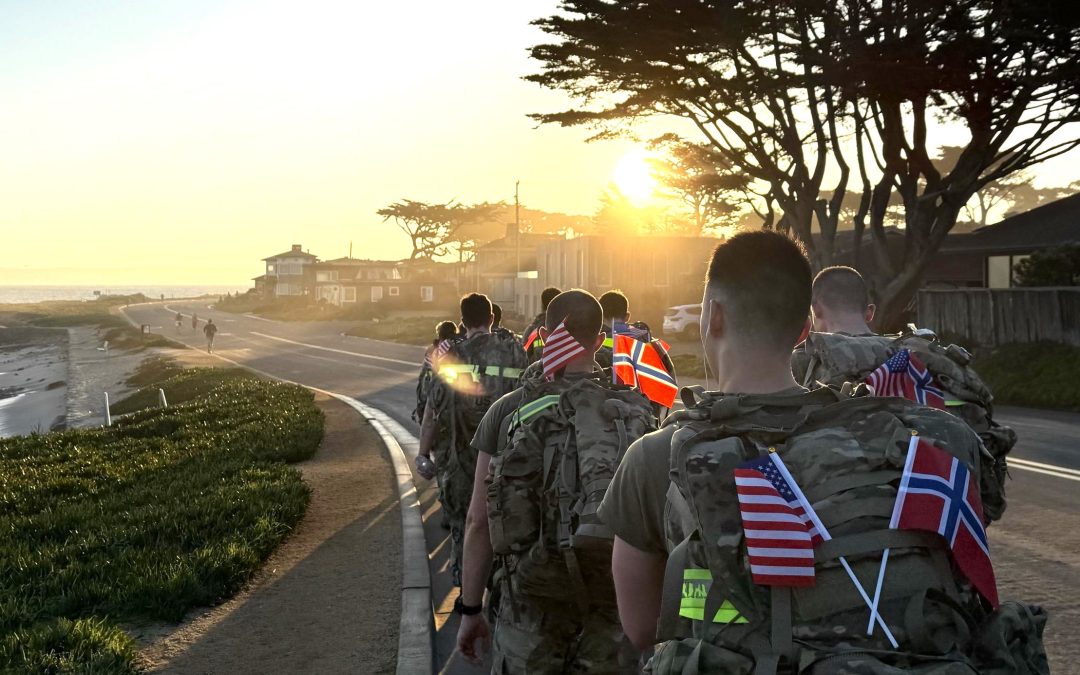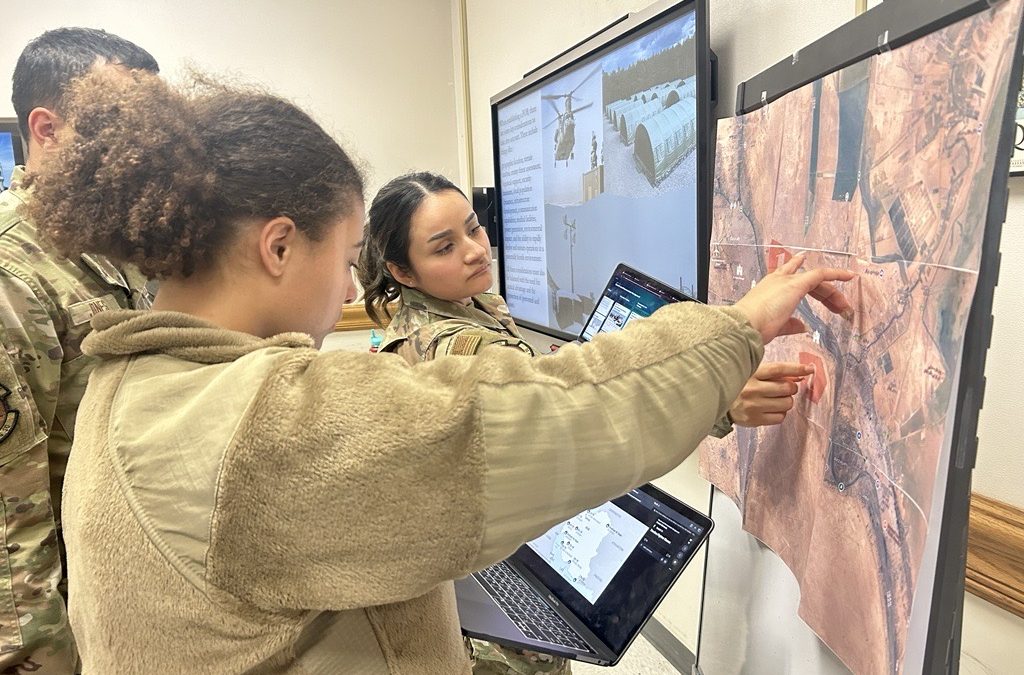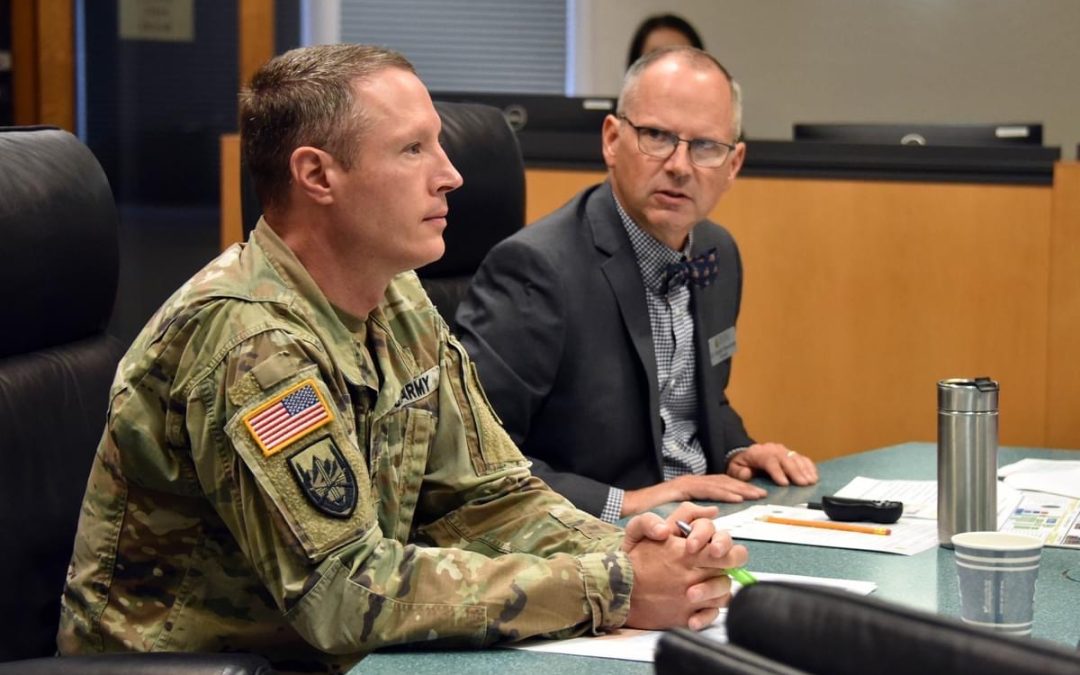By Tammy Cario, Mission Public Affairs
Less than six months into a global pandemic that saw entire nations come to a complete halt, social unrest sparked when George Perry Floyd Jr. was killed during a police arrest in Minneapolis, Minnesota. What followed was a wave of protests so strong, it echoed around the world. People from all walks of life across the United States, with international support, gathered to stand against racism and violence against their African American communities.
For Army Maj. Teisha Barnes, a student at the Defense Language Institute Foreign Language Center, it was a particularly trying time.
“Not everyone understands how we have to compartmentalize our life,” explained Barnes, who is African American and a student at DLIFLC on the Presidio. “Because even though black lives matter, and I’m seeing someone who looks just like me or my brother dying on TV, I still have to get up and go to class and act like nothing is happening.”
In the days that followed, tensions in the U.S. were at an all-time high with people of all races and ethnicities demonstrating in unprecedented numbers. The presence of coronavirus seemingly took second place to fighting for justice.
In response, Col. Gary Hausman, commandant of DLIFLC, held a virtual town hall June 4, and invited anyone who wanted to have an open and honest discussion about racism and discrimination and what recent events had brought up.
“(It) is an important topic right now given what’s going on around the United States,” Hausman said in the town hall. “I’m not going to pretend that I know what it’s like to be discriminated against. I recognize that I am a white man who potentially can have an advantage that others do not. So…I want to have a conversation because I want to listen and I want to learn and I want all of you to come into this and be able to achieve the same because we can all learn from each other.”
What came out during the candid discussion was eye-opening for some who had never faced this type of negative attention.
One service member talked about discrimination while at the store. Another spoke of young friends she hadn’t been allowed to play with because of the color of her skin.
After the students broke up into smaller groups to talk, another service member, Barnes said, told of how he has to be careful when he is out exercising.
“He said when he’s running and he sees someone of a different race, he’s like, ‘Oh hey, how you doing?’ Like you have to be extra friendly because you don’t want anyone to think otherwise. That’s a lot. That’s so draining.”
And, as Barnes explained, there are other problems that people might not see. When moving to a new assignment, her teenage son normally flies to their duty station. Barnes, on the other hand, drives their car and has to carefully plan routes to get to her destination while making sure to go through certain areas before dark and to gas up in a city area.
“There are certain towns where you can and cannot drive as a black person,” she said, “There are places that still have signs that say, ‘No Coloreds After Dark.’ And you sometimes have to go through those places…to get to your next duty station.”
More telling, however, might be the talk she was given by her parents, and advice that she has now passed on to her son as he learned to drive. “He has a whole speech memorized if he’s leaving the house so that I can guarantee he comes home,” if he gets pulled over, she explained.
“It’s scary because at what point does my son go from adorable to a threat?”, she asked. “At what point do people become afraid of him?”
While the Army now actively works against discrimination, it wasn’t always that way. It took nearly two decades before a presidential mandate made in 1948 was put into action across all the branches, stating that all units had to be free from discrimination irrespective of their color.
What has since followed is a sincere effort by policy makers and service members alike to put this mandate into everyday life. It hasn’t always been successful, but people like DLIFLC Assistant Commandant Air Force Col. Stephanie Kelley and her staff work to keep a vigilant eye on equality in the military. In large part because of the protests, she, along with her staff, felt spurred into action: producing a study called The Equity Project.
The Equity Project will comb through the Institute’s administrative actions records and look at disenrollments in the past five years to see if any race has been punished more harshly than another. For instance, if 15% of the student population is African American and 35% of the administrative actions are against African Americans, it would be flagged that there is an issue.
“One of the reasons I wanted to do this study is that it’s upsetting,” said Kelley. “I mean, it’s 2020. I thought we were done, that we were in a new age, a new era. That we are enlightened.”
Another impetus for the study was the reality of discrimination in today’s military. A study done in 2018 found there was significant racial discrimination in military justice across all the branches. Summed up, Kelley said, “if you’re a black service member, you’re more likely to have some sort of non-judicial punishment or some sort of corrective action taken against you.”
The problem today, Kelley said, is that people may be unaware of their innate preference. “The issue with unconscious bias is that no one is doing it on purpose.” The hope with this study, she added, is if they find anything, it will bring that bias to light and people will become more aware of their actions.
As for Barnes, she is looking at the situation with hope and determination.
“I think some people are getting the picture,” she said, in expressing her gratitude to Hausman for holding that difficult discussion with the students. “I’m feeling like there’s more people now who are willing to listen.”
In the meantime, Barnes tells her African American friends the same thing her parents told her – it’s all about hard work. “You have to prove yourself,” she said. “So, you make it work or you give up.” For Barnes, giving up isn’t an option, a trait that has taken her far in her military career and in life.




